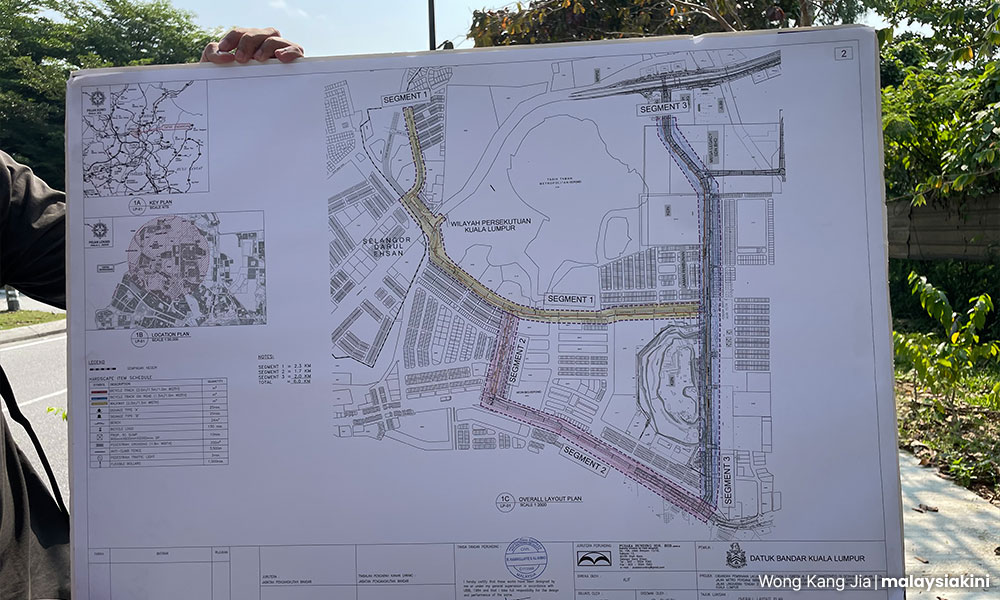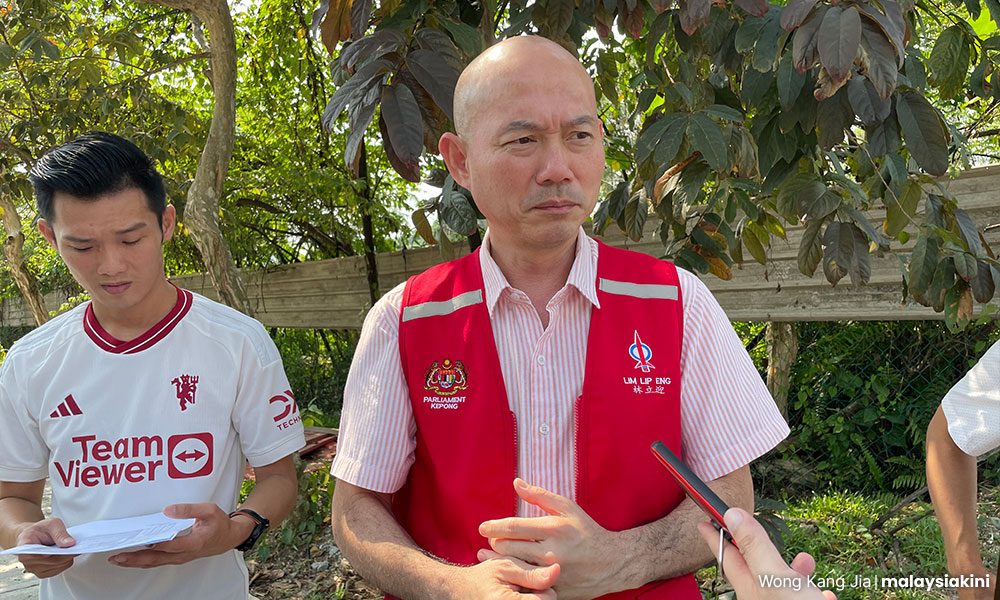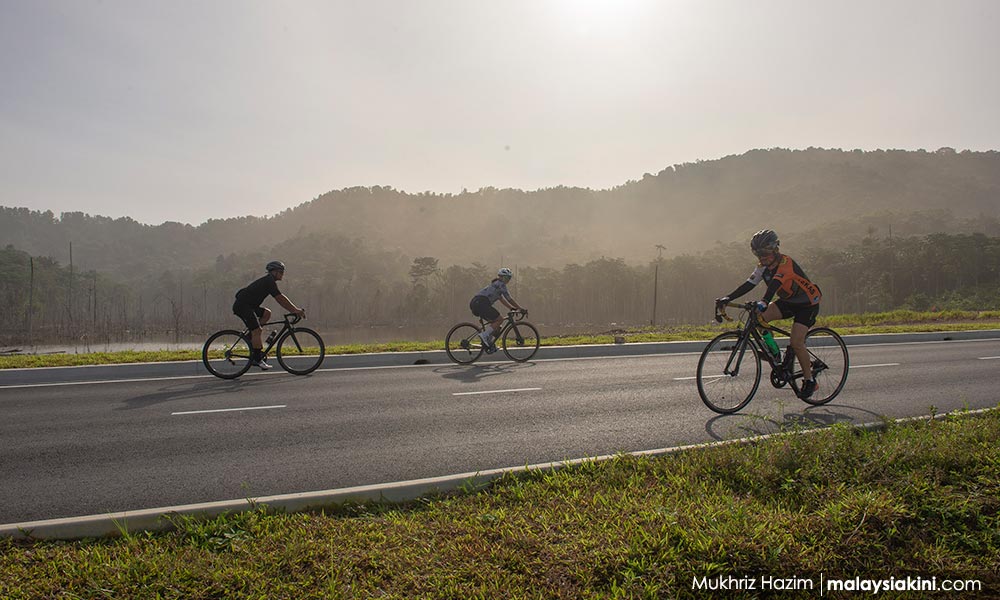Why build bicycle lanes when nobody wants to use them?
This is what Kepong MP Lim Lip Eng queried about in regard to Kuala Lumpur City Hall’s (DBKL) project to build 6km of cycling lanes in his area at a cost of RM10.5 million.
His reasons for pouring cold water on the project were
City folks don't like to sweat
Lack of traffic safety
High cost
All his concerns are valid. But he may also want to ask why Singapore plans to increase its bike lane network from 530km to 1,300km by 2030.
Singapore has the same hot climate as Kuala Lumpur yet cycling is so popular there and helps reduce traffic on their roads.
Meanwhile, Malaysians bought 720,000 new vehicles in 2022, many of them in the Klang Valley. How much more fuel, time and stress will be wasted in ever-worsening traffic jams? Prime Minister Anwar Ibrahim himself acknowledged in March that road congestion causes "billions" in lost productivity.
The Klang Valley is already crisscrossed with multiple tolled highways, how many more can we build? What about air and noise pollution plus extra congestion pouring into small local roads?
This is what led residents to protest the proposed PJD link highway. People like highways – except when it's in their backyard.
In contrast, our southern neighbour has chosen to promote cycling in a big way. This is its "car-lite" vision, announced in 2014 as part of the Sustainable Singapore Blueprint.
Proper lane planning
Lim is right that there are many factors discouraging cycling in Kuala Lumpur. But at least, building new bike lanes (separated from motor traffic) removes one of his major objections – traffic safety.

Other issues have to be dealt with in a systematic way. As a cyclist myself, I have seen some bike lanes in Kuala Lumpur and Petaling Jaya rather underused. Design and mindset are two key issues.
Are local authorities building these lanes mainly for weekend fun cyclists in fancy lycra jerseys? Or are they thinking more of everyday transport and commuting?
The main problem of our LRT/MRT system is the "first and last mile" connection because our housing areas are so spread out.
Every LRT/MRT station should be connected with multiple cycling lanes in a 2km radius to surrounding areas. This will save many people from paying daily for ever more expensive e-hailing rides.
One of Lim’s main objections is that pampered city folks don't like to sweat. But short distance pedalling to the stations in cool mornings and evenings (before and after work) is surely not that strenuous.

It will also encourage people to exercise more, as Malaysians are increasingly plagued by diseases of sedentary lifestyles – high blood pressure, heart problems, stroke etc.
If even that is too strenuous for couch potatoes, they can use e-scooters (with speed limits and other safety rules). This should be allowed on bike lanes by the upcoming "comprehensive public transportation framework", being prepared by Transport Minister Anthony Loke.
However, the new 6km bike lanes in Kepong were reported to connect to only one MRT station. This seems shocking when Kepong and next-door Jinjang have five MRT stations. Why aren't all of them being linked up by cycling paths to residential areas?
What was DBKL thinking of when designing them? Coupled with the high cost of RM1.75 million per km, this makes taxpayers wonder if somebody is making extra money somewhere.
It is sad that a unity government MP has to criticise a city council, which is ultimately controlled by Anwar himself. Have the old habits of some city council officials escaped our PM's attention?
Cycling saves money
The main attraction of bike lanes should be that they are far cheaper than yet another elevated highway. And it costs so little to buy, maintain and use a bicycle, compared to a car.
Given people's complaints about the rising cost of living, the unity government should help people save money on car petrol/parking or on pricey e-hailing rides.
It is not that easy to encourage people to cycle as part of daily transport. But it can be done. There's no need to reinvent the wheel as we only need to learn from our neighbour.
Singapore's Land Transport Authority is building cycling paths that connect commuters from their homes not only to nearby MRT stations but also to bus interchanges, shopping malls and schools.
All this creates a critical mass of riders that ensure bike lanes don't become white elephants. Linking up schools is important as students can't drive cars or ride motorbikes. This will also save parents from being daily taxi drivers for their children.

Cycling lanes also need supporting infrastructure and there are 254,000 bicycle parking spaces around the tiny island republic.
And coming back to sweat, Singapore has given out grants to entice developers to provide end-of-trip cycling facilities, such as lockers, shower stalls and changing rooms.
Luckily, we don't have to go so far as almost all Malaysian toilets have bidets. All that's needed is a simple extra attachment so that they can also be used as showers.
It should also be obvious that any bike lanes need to be maintained. Sadly, in some bike lanes I've seen in Petaling Jaya, council workers fail to clear fallen branches or sand/mud.
Why are they treated as stepchildren compared to roads for the Almighty Automobile? Does that reflect the Madani core values of a "civilised and inclusive" society?
Apart from Singapore, we should also learn from our own small towns like Kampar, Perak where people cycle to the morning market daily. Rather than faceless drivers, cyclists interact with people and enhance the sense of community.
So it's time to stop thinking of cycling only as a weekend hobby.
Cycling reduces daily traffic jams and pollution, thus boosting productivity. It improves people's health, thus cutting the load on public hospitals. And it saves money in both personal transport bills and billions for new highways.
In other words, when countries invest in cycling, it will generate benefits for the whole country, not just for cyclists.
So let's have more bike lanes. Just design and maintain them properly, please. - Mkini
ANDREW SIA is a veteran journalist who likes teh tarik khau kurang manis. You are welcome to give him ideas to brew at tehtarik@gmail.com.
The views expressed here are those of the author/contributor and do not necessarily represent the views of MMKtT.




No comments:
Post a Comment
Note: Only a member of this blog may post a comment.